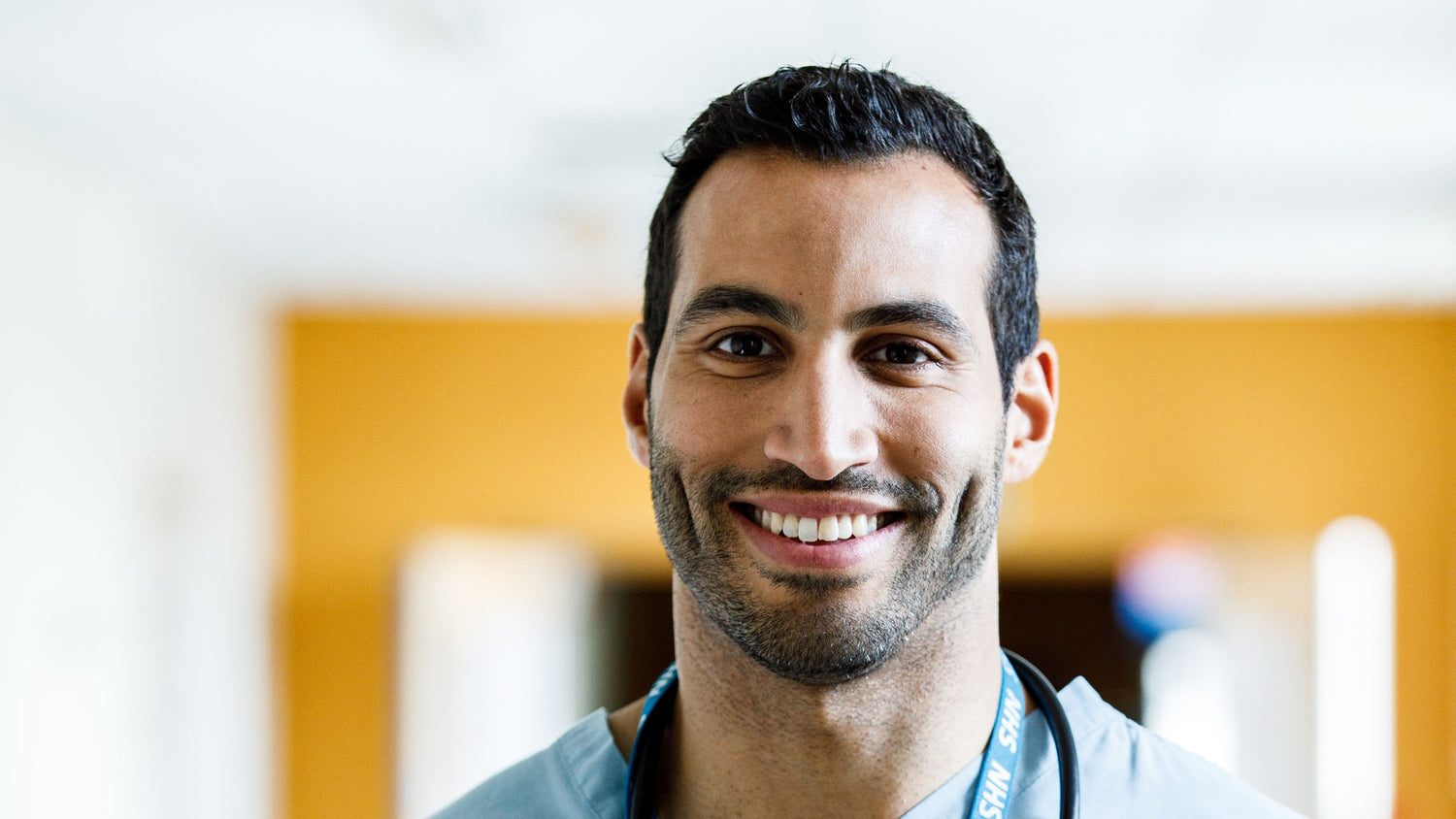We caught up with NHS doctor Chris George to find out how and where his interest in gut health started, plus delve into how he starts his day ahead of a busy clinic.
What does your morning routine look like?
My morning routine is really important to me as it sets me up for a successful day. Working as an NHS GP means that my day is very busy, so my mornings allow me to prepare for the day ahead. I’m very much a morning person so I get up early, around 6ish, and head to either the gym for a functional workout, CrossFit, or a run, as I’m training for the London marathon. I usually have my gym stuff laid out the night before so as I head out, I grab my bag and a shot of Symprove. After a workout I get home for a quick shower, I make a post workout smoothie that I take to clinic and a healthy-ish lunch (usually fresh salad, lean protein, fruits and snacks). I have 15 mins to have a coffee with family before heading into my clinic for the day.
Where did your interest in gut health start?
My interest in gut health started when I was in my early 20s. Whilst travelling in Mexico one of my best friends caught a tummy bug and was given several courses of antibiotics, which caused her symptoms to worsen and she experienced diarrhoea, stomach cramps and bloating for months. It wasn’t until she got back to the UK and was seen by a specialist that the penny dropped and the link between antibiotics and gut health was made. I then spent my time at Medical School reading and learning more about the fascinating topic of gut health which has come on so much recently.
What one thing about gut health do you wish more people knew?
I wish people knew more about the gut microbiome and some of the simple ways we can look after the trillions of gut-friendly bugs that live there. The importance of these microorgansims is becoming better understood as they play a crucial role in our immunity, metabolism of nutrients and general health.
Tell us something about the gut that we might not know…
So, did you know that the gut and our brain are actually connected? When I first heard this it kind of blew my mind but also made sense. If you’ve ever been nervous and experienced butterflies or heard the expression to ‘trust your get feeling’, then this will make sense when we look at the gut-brain axis. Our brain and gut is connected by a long nerve which allows communication in both directions. 95% of our serotonin is made in the gut and is also used as a neurochemical by the brain to regulate mood, learning and memory.
What made you want to partner with Symprove on our #ItTakesGuts campaign?
As a GP I see lots of patients who are too embarrassed to come forward and seek help for digestive problems. This means that people have spent many years unnecessarily suffering in silence and misdiagnosing themselves through online misinformation and forums. What I loved about the #ItTakesGuts campaign is that it empowers people to find the right words and tools to start talking about their gut health. Breaking taboos and speaking about bowel habits is so important as it has often been something that the older generation never discussed.
And on that note, how is your gut today?
My gut is pretty good today. I don’t have any gut symptoms and I’m able to go to the toilet regularly.
Top tips for looking after physical health?
Sleep is probably one of the most underrated pillars of health. Making sure you get a decent night sleep will improve energy levels, concentration, heart health and immunity, to name just a few benefits. Start with a 1-hour wind down routine before bed to improve sleep quality and quantity.
Exercise is important for good health and protects our bodies in old age by maintaining strength and cardiovascular fitness. The recommendation for a healthy adult is at least 150 mins of moderate or 75 mins of vigorous exercise per week plus 2x strength building exercises (e.g. yoga, carrying heavy bags, gym) and reducing the time spent sitting.
Aim for at least 30g of fibre as this helps with digestive symptoms, feeds the gut friendly bugs, and reduces digestive symptoms such as constipation.
Making sure you try and follow a healthy diet by increasing fruit and veg and reducing processed and refined sugar is also important. Good nutrition protects against many chronic diseases (NCDs) keeping us happier and healthier for longer!
Top tips for looking after mental health?
Social connection, whether that’s a call to a loved one or spending time with people, is so important for our mental health. You may have seen that this year’s theme for Mental Health Awareness Week was around loneliness to reflect this.
Avoiding caffeine and alcohol can have a big impact on symptoms of anxiety and depression. So, try and switch to decaf and take advantage of the ever-increasing number of non-alcoholic options available.
More of us are than ever are exercising for our mental health which is great to see. Recent research has shown that exercise can change the composition of our gut microbiome which may be involved in mental health conditions.
What one thing can we do today to help look after our gut?
One of the easiest and most simple things you can do to look after your gut is to increase the number of plants in your diet. Try and aim for at least 30 different types which may sound like a lot but if you get creative and use seed mixes and incorporate things like nuts, you will get there quite quickly!
Thanks Dr Chris. Find out tips and tricks for looking after your gut health from a Doctor's perspective



